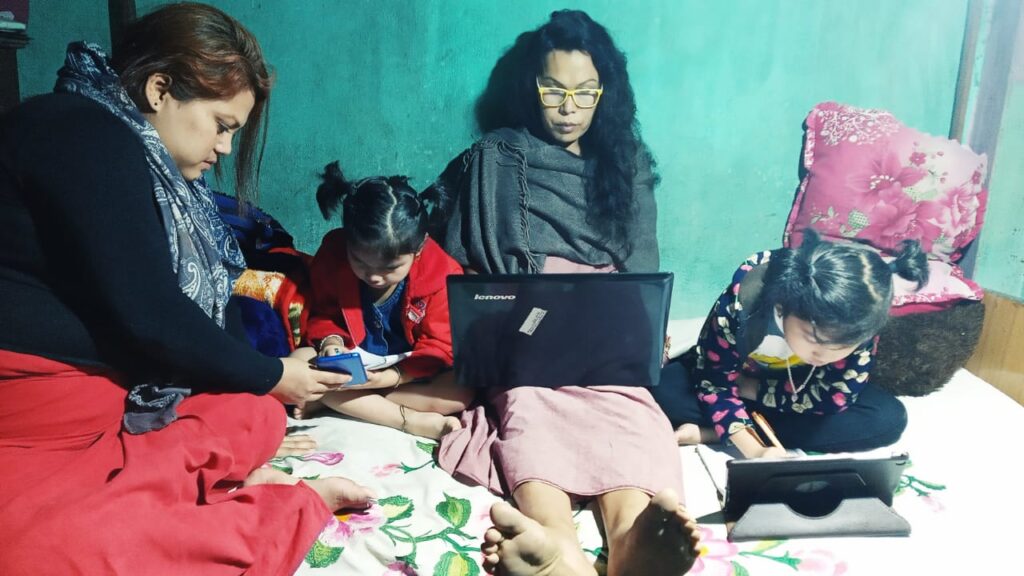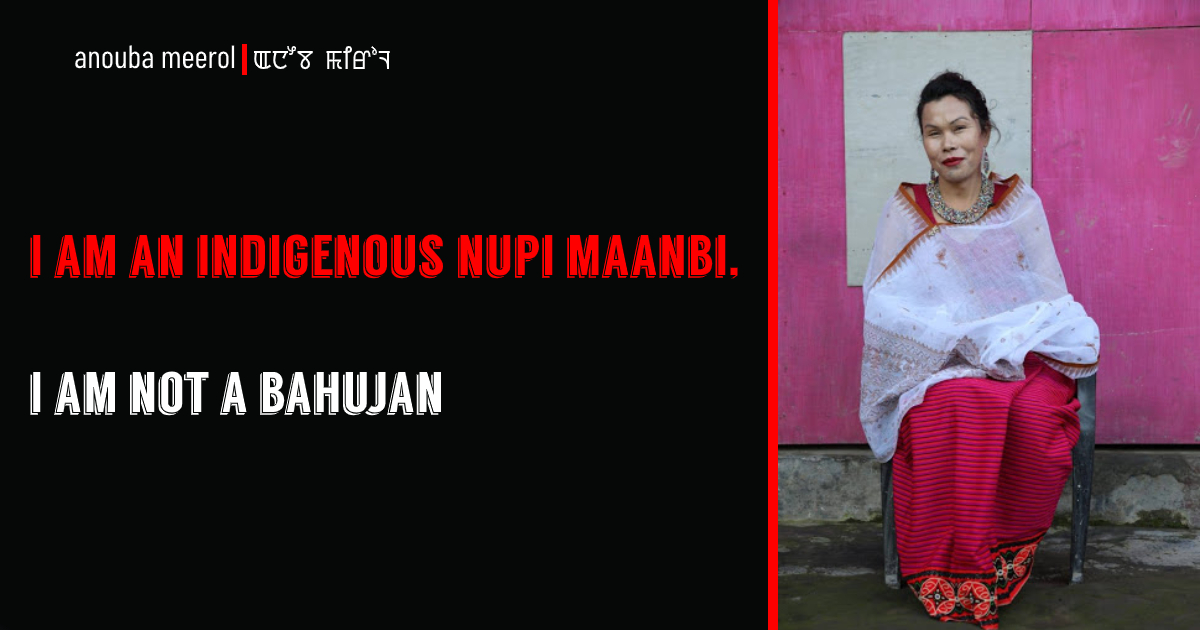Round Table India recently published an interview of Santa Khurai, a prominent Meitei Nupi Maanbi activist, writer and artist from Manipur as a part of the series called “Bahujan perspective on coronavirus pandemic.” When she noticed the caption which mentioned “Bahujan perspective” above her interview, it hit her that something was not right. She urged the Round Table India to change the caption as it implied that she spoke from the perspective of the Bahujans. Round Table India later removed the caption.
When Anouba Meerol met her for an interview to discuss her initiative of helping economically deprived children in getting access to online education during the lockdown, we took the opportunity to inquire about her thoughts on the use of terms such as Bahujan in describing indigenous people. We asked her why she objected to the use of terms such as Bahujan in describing a Meitei Nupi Maanbi. Her remarks on the matter shed light on how indigenous people understand their world and how different it is from the mainland narratives that always attempt to assimilate us. Santa Khurai began by saying, “I am an indigenous Nupi Maanbi, I am not a Bahujan.” She said, “We have heard about Dalits as their politics is visible now. Bahujan is a very new word for me. They have terms such as Savarna, Vaishya and Shudras. They have different castes. We are not very aware. The students who study social work might understand these things better. When these things are put in the narrative, we take time to understand what these things mean.” These terms from the mainland academic and activist circles have reached here, but we have very little idea of what they mean and the implications behind using these terms. She then explained, “Most of the time we miss it as we focus more on terms like race, indigenous and transgender, in particular for the interview.” The reason behind this lack of understanding is that the realities are very different. She said, “If we look at our reality, we know of racism. We have very little idea of the Dalit politics or class-caste politics over there. These things are very new to us.”
Santa Khurai appreciated Round Table India for their swift reaction. But she also told us there had been writers who had used mainland narrative intentionally while talking about the northeast. She mentioned Nandini Krishnan’s 2016 book Invisible Men: Inside India’s Transmasculine Network which used the myth of Chitrangada and Arjuna to talk about the trans-community of Manipur. The book faced objections from the trans-community of Manipur but the author did not entertain the matter at all. Later, activists from the trans-community and students organisation burnt the book down in Dhanamajuri College Campus for distorting the history of the indigenous people of Manipur. Santa Khurai said, “These things are deliberate attempts to assimilate the people of the northeast into the mainland Indian narrative.” Santa Khurai found it as an attempt to build a pan India narrative where we all fit in and told us that indigenous people should not accept this.
Santa Khurai narrated another incident when she gave an interview in a mainland newspaper. She said, “I talked to them from the perspective of the northeast, but when they published everything turned about national integrity. I have neither talked about national integration to them nor about separation of northeast from India. I only talked about the reality of the northeast. But, they brought in national integrity.” She lamented these misrepresentations have been rampant. Santa Khurai said, “These things have been happening for a long time. We notice these misrepresentations because we have easy access to the materials these days because of the internet but it was a different scenario earlier as we had no access.There are many instances where misrepresentations have taken place and these materials are now part of the documentation on the lives of the indigenous people. To make the matter worse, indigenous people do not have a habit of documenting things, be it the people in the valley or in the hills.”

Santa Khurai is the secretary of All Manipur Nupi Maanbi Association, an organisation working for the rights of the transgender community in Manipur. She is currently raising funds to buy Samsung Tablets for economically deprived children in her neighbourhood so that they can get access to online education during the ongoing COVID 19 related lockdown. If anyone desires to donate, please click the link below.

[…] where it implied her perspective as Bahujan perspective was removed from the post. Santa Khurai said, “She did not notice it at first as these terms are very new and alien to her. Given that our […]